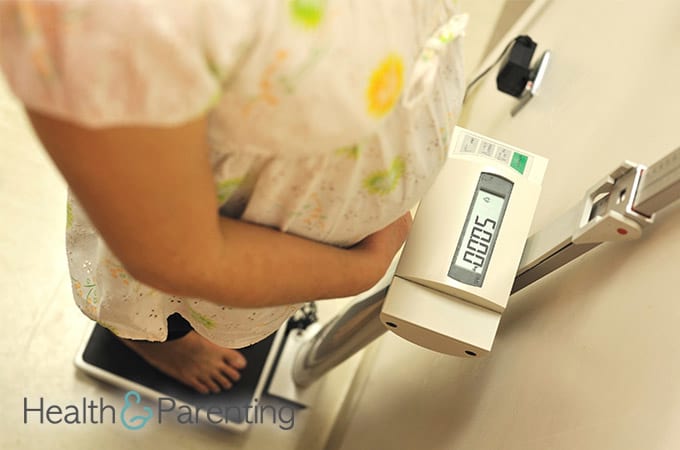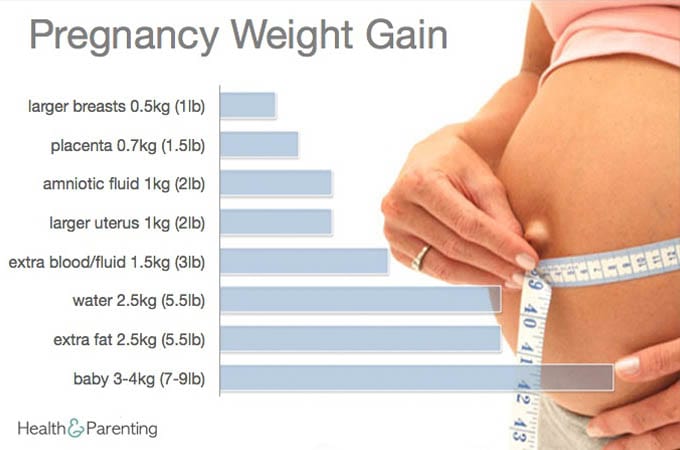Some women really do glow and exude self-confidence, from the moment they pee on the stick to the final push of labour. These women look amazing in maternity wear – even yoga pants – and seem to have been designed with pregnancy in mind. These women appear to be doing pregnancy ‘right’, and as they jog past you, momentarily blinding you with their glow, you can’t help but worry that you’re doing pregnancy all ‘wrong’.
Not all women feel confident and beautiful during pregnancy. For some, the changing body and continuous weight gain can take its toll. If you’re feeling self-conscious about pregnancy weight gain, the following tips may help to ease your mind:
1. Weight gain during pregnancy is normal – It’s not just normal, it’s expected. Your body is busily growing a whole other person, so of course you will probably put on a few extra pounds. Look around you, all of the other women at your prenatal class are looking pregnant too.
2. Weight gain doesn’t mean overweight – Weight gain during pregnancy is made up of lots of different things. On average, the placenta alone weighs 0.7kg (1.5lb), and the extra blood coursing through your veins is responsible for an extra 1.2kg (2.6lb). Your body stores fat in preparation for breastfeeding, so around 4kg (8.8lb) of fat is there to make sure you have the energy necessary for feeding your newborn. So don’t think of it as ‘fat’, think of it as pregnancy weight.
3. Pregnant bodies are beautiful – You may not feel it now, especially if you’re nearing the end of pregnancy. You may feel big, cumbersome and exhausted, but to most onlookers, you are beautiful. Your body has changed to allow you to grow, sustain and birth a new life. It might not be the Hollywood figure we’re used to seeing in the media, but that doesn’t mean you’re not rocking it.
4. It’s only temporary – It can be hard to adjust to the physical changes of pregnancy. As soon as you become accustomed to one change, something else changes. Your bump will continue to grow, your breasts will change and your face may look a little bigger by the end too. Through all of this, remember it is only temporary. After the birth, your body will start to shrink back down, and you will be able to regain a little bit of that sense of self you are currently longing for. You’ll even be able to get into your old jeans again.
5. Track your numbers – As long as your weight gain is within the healthy range for your pre-pregnancy BMI, you should have nothing to worry about. Your healthcare provider should have weighed you at your first appointment, and have offered you advice about healthy diet and weight gain. If you are concerned about weight gain, speak to your healthcare provider.
6. Nearing the finish line – if pregnancy has been nine long months of feeling insecure, worrying about weight gain and longing for your old body, you are probably keen to get to the finish line. Remember, when you do finally reach the finish line, your newborn baby will be waiting for you.
How do you feel about your changing body?
Written by Fiona, proud owner of a toddler, @fiona_peacock
This information is not intended to replace the advice of a trained medical doctor. Health & Parenting Ltd disclaims any liability for the decisions you make based on this information, which is provided to you on a general information basis only and not as a substitute for personalized medical advice. All contents copyright © Health & Parenting Ltd 2018. All rights reserved.












